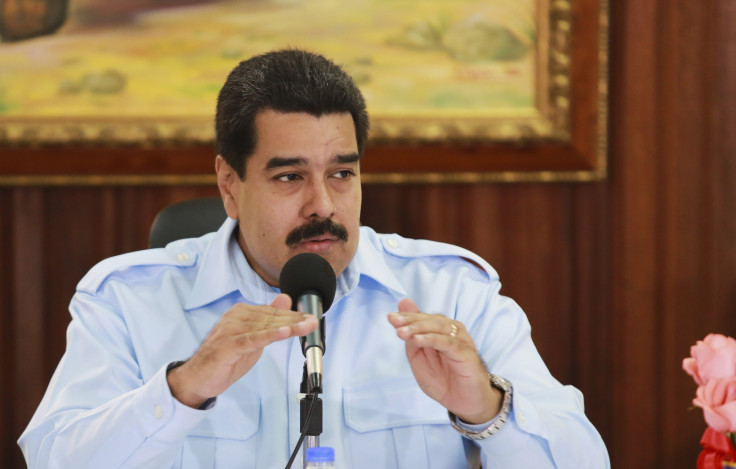Venezuela’s Maduro Says Default Fears Are The Work Of Foreign Media

Venezuela may have won a seat on the U.N. Security Council, but President Nicolás Maduro doesn’t have much else to be happy about these days. The Venezuelan leader lashed out at news agency Reuters this week for what he said was a “campaign to destroy Venezuela.”
Maduro, speaking during a government council meeting Wednesday, said Reuters and other international news agencies were deliberately stoking fears that Venezuela would default on its debt. “What is Reuters looking for?” he asked, according to local reports. “Do you believe that a news agency like Reuters can find the good in Venezuela?”
He then denounced the agency, saying its reports were alarmist and damaging. “How far will some grimy minds take their evil?” he asked.
Reports of Venezuela’s financial troubles have proliferated in recent weeks as falling oil prices threaten to exacerbate an already frail economic situation. But Maduro has thrown sharp words at academics and reporters who have said that the economy could be in dire straits. Last month, he slammed Harvard economist and former Venezuelan minister of planning Ricardo Hausmann, who co-wrote an opinion piece suggesting that Venezuela should consider defaulting on its external debt. Maduro took to live television to call Hausmann a “financial hit man” and “outlaw” who wanted to destabilize Venezuela’s economy.
Maduro assured the public on Wednesday that Venezuela had its economy and external debt situation under control. “Venezuela has the economic and financial capacity, resources, strategic policy and the supreme will to continue its course and meet international financial commitments,” he said.
Meanwhile, the president’s approval ratings have fallen to 30.2 percent in September, down from 35.4 percent in July, according to polling firm Datanalisis. The survey also reported that 81.6 percent of Venezuela’s population viewed the country’s economic situation negatively.
© Copyright IBTimes 2025. All rights reserved.






















